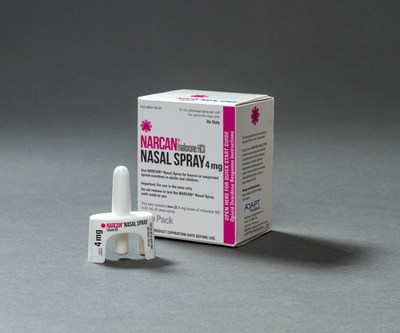
Features
Back of the Book
Opinion
Naloxone use brings specific liabilities for police
Police are on the frontline of a health crisis. Again.
February 27, 2018 By Rick Robson

It is hard to argue that we are in the midst of a national health crisis. Let me be more specific — a crisis of overdose deaths. With the influx of deadly narcotics, such as fentanyl and carfentanil, accidental overdoses are occurring at epidemic rates. And it’s happening from coast to coast.
Like in any crises, it is difficult to stay on the sidelines as a first responder. In this case, it is impossible. The reality is: these drugs are so deadly we have to concern ourselves with our own safety when handling them. That brings us to the introduction of naloxone.
From the medical expert perspective, naloxone simply inhibits the body’s ability to absorb the ingested narcotic that can lead to life-threatening conditions. On its own, it can’t be life threatening — outside of severe allergic reaction. Therefor administering it when it is not necessary can’t cause death. Think of giving a suspected diabetic orange juice; it might not help if you are treating the wrong condition, but it can’t hurt either.
So let’s agree naloxone does and will save lives, lots of them in fact. What it will not do is unpack all the other socio-economic issues that lead to drug use and abuse. If we can agree on this, there is not much point in arguing whether or not we should have it in the first place.
We are also all likely agreed that the police are not well placed to deal with or resolve the concurrent mental health crisis in which we are immersed. I can’t foresee that file being taken off our hands any time soon.
This epidemic will see most, if not all police officers being issued naloxone and that — much like the mental health crisis — brings some liabilities along with it. It is a sad misfortune for our frontline first responders.
Ontario’s Special Investigations Unit (SIU), to date, indicates that it will treat a death involving a police officer and naloxone no differently than any other scenario. Our partners in first response, the fire services, are on the same plane as any Good Samaritan, meaning they can get and administer their own naloxone free of charge and conviction. Police enjoy no such immunity.
What also remains to be seen is the response from SIU if an officer fails to administer naloxone in an overdose death. Police are duty-bound to preserve life. If an officer has naloxone on their duty belt — in addition, remember, to the myriad of other use-of-force options, PPE (personal protective equipment) and tools they carry — are they not duty-bound to administer it to save a life? Omitting to act on a duty that results in death is the Criminal Code definition of criminal negligence. Is that the definition the SIU will apply in these scenarios?
How is it fair that the government is making a life-saving drug available to every citizen in Ontario, free of charge, yet the only ones to be investigated for a crime upon its use are the police? I guess when we asked for the uniform, we forgot to ask for fairness.
Rick Robson started as a constable with the Sault Ste. Marie Police Service in 1995 and moved to London, Ont. with his family in 2002. He has been the full-time executive director of the London Police Association since November 2015.
Print this page